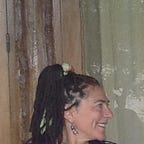Syrian refugees in the streets of Addis Ababa
It was a shocking sight, one that we have not seen before and that goes against all our established ideas: white people begging in the streets of a city in Africa. It may not be politically correct to express it in those terms, but I find no other way to be so clear. We are used to seeing indigenous people begging in African cities, or homeless people in their own towns in Europe, or African migrants in the northern hemisphere, never before have we seen white people begging in Africa. I am talking about the Syrian refugees I saw in the streets of Addis Ababa last month just before the coronavirus pandemic took the world by surprise. Single men, fathers with children, families who stopped cars in the hope of being given enough monies to go by the day. Knowing that Ethiopia ranks amongst the poorest countries in the world (in spite of fast urban growth in Addis Ababa), why would Syrian refugees choose to go there out of all places? Are they so desperate that they find no other destination? Is it a result of Europe’s selfish push against them?
I was driving around Addis with an Ethiopian friend of mine who told me that the local residents were just as shocked to see white people begging in their city. They carry similar established ideas about homelessness. Consequently, they were more generous than they would be with their own destitute people and gave them Birr (the local currency) in the hundred rather than the dozen. They treat them with more respect, being themselves saddened by this new reality. From what my friend said, Syrian families tend to be well organised with strong solidarity within their community. Relying on the generosity of the city residents, they can afford to rent a house together, share meals and support each other through hard times. Unfortunately, I wasn’t in Addis for long enough to investigate more and try to talk to the refugees themselves. As I was working on a project that gave me little time for anything else, except driving through the city to go from my hotel to a place of work, I could only rely on my own observation together with the bits of information gathered from local friends and colleagues.
As surprising as it may seem, it is not the first time that Caucasian people from Western Asia sought refuge in Ethiopia. Towards the end of the 19th century, many Armenians, then subject of the Ottoman Empire, emigrated to Ethiopia to flee the massacres that eventually led to the 1915 Armenian Genocide. In Addis, they were welcomed by Emperor Menelik II who gave them his imperial protection. The times were different, they didn’t have to depend on the people’s generosity to rebuild their life, they could benefit from the fruit of their labour. In Menelik II’s court, they worked as jewellers, photographers, midwives, or tailors. For the mighty Emperor, their contribution went beyond the product of their craft, they brought modern technologies and knowledge they could share. They built houses in Caucasian style that are now part of the architectural heritage of Addis. The relationship between the Armenian people and the Ethiopian Crown stayed strong for nearly a century, until the demise of the last emperor, Haile Sélassié, in the 1974 revolution. Armenians became Ethiopian citizens and today, a small community still lives in Addis, however, their number has dwindled as many of them left after the 1974 coup d’Etat and the regime change.
Whether today’s situation is an indication of a deep shift in the global movement of people or an isolated event that affects only one community -the Syrian people — is too early to tell. As our world is moving from crisis to crisis and now going through an unprecedented pandemic, we all sense that something major is happening, our world is being shaken to the core but we cannot yet comprehend how it will be transformed.
